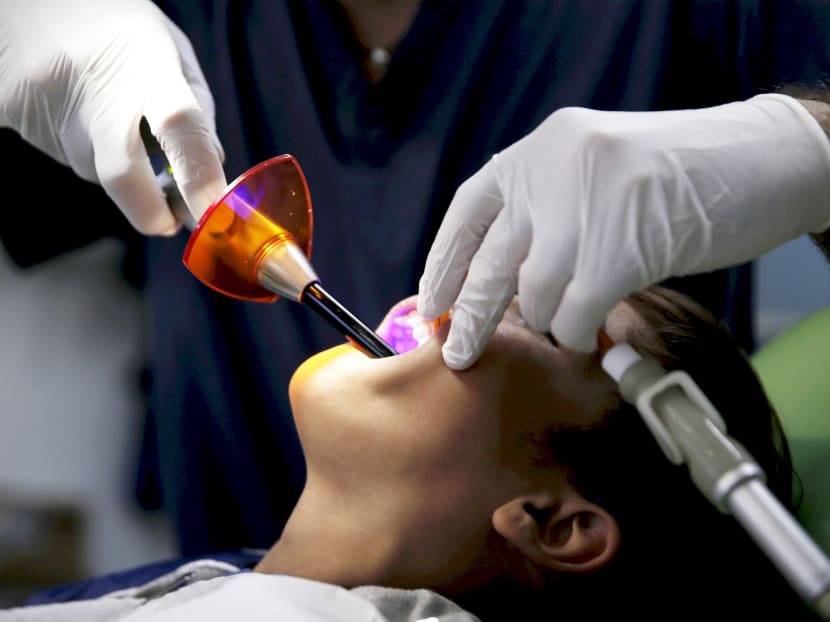Equipment at TTSH dental clinic not thoroughly sterilised in latest health incident
SINGAPORE — Up to eight patients who visited Tan Tock Seng Hospital’s (TTSH) dental clinic between Nov 28 and Dec 5 may have received treatment using dental equipment that was not thoroughly sterilised.

The Ministry of Health said in a media release on Monday that it was informed by Tan Tock Seng Hospital two days ago that eight packs of dental instruments did not undergo the last step of sterilisation, which involves a process of steam sterilisation to remove bacterial spores.
SINGAPORE — Up to eight patients who visited Tan Tock Seng Hospital’s (TTSH) dental clinic between Nov 28 and Dec 5 may have received treatment using dental equipment that was not thoroughly sterilised.
The Ministry of Health (MOH) said in a media release on Monday (Dec 10) that it was informed by TTSH two days ago that eight packs of dental instruments did not undergo the last step of sterilisation, which involves a process of steam sterilisation to remove bacterial spores.
The instruments may have been used at the hospital’s dental clinic, said TTSH and MOH.
TTSH said that on Dec 4, a staff member from its dental clinic found a dental instrument that had not gone through the final step of sterilisation.
A check the next day revealed that eight packs of dental instruments were not thoroughly sterilised on Nov 28. Each pack is usually used for one patient, although some patients may require more.
TTSH added in its statement that the risk of infection to patients arising from the incident is “extremely low, given that the completion of the earlier steps in the sterilisation process would have removed close to 100 per cent of organisms of concern”.
“Nevertheless, we are contacting all 575 patients who had been treated at the dental clinic during the affected period to reassure them on their low risk of infection, provide support and address any concern,” TTSH said.
The hospital also imposed a “safety time-out” on Saturday and suspended elective procedures at the clinic. The procedures will resume on Wednesday.
MOH added that it is assisting the hospital with contacting patients and the implementation of additional control measures.
Following the incident, it has also met with the management of public healthcare institutions to “reiterate the importance of continued efforts on staff awareness and full adherence to processes for patient safety and care”. They were also asked to review their processes in all areas where sterilisation is performed, said the ministry.
This is the second such incident that Singapore has seen in the last 18 months, following an earlier case at the National Dental Centre Singapore (NDCS) in June last year.
In that instance, dental instruments that were not completely sterilised were used in patient treatment at the NDCS. A total of 72 packs of instruments were compromised and four NDCS staff were disciplined for the hygiene lapses.
Health Minister Gan Kim Yong said: “We take a serious view of the incident at TTSH Dental Clinic and I am disappointed it has happened despite our (earlier) efforts.
“This incident is a timely reminder to all healthcare institutions to maintain a high level of vigilance in delivering patient care safely at all times.”
The MOH said that the incident, which took place on June 2017, “uncovered learning points on sterilisation processes for instruments”. It had then conducted audits on all licensed public and private healthcare institutions with central sterile supply departments.
The audit results showed adherence to existing measures, added the ministry.
TTSH DENTAL INSTRUMENT STERILISATION PROCESS
Manual wash, followed by an ultrasonic machine sonication, with enzymatic solution for fine instruments
Air-drying to remove residual moisture, followed by packing, sealing and labelling
Steam sterilisation to remove bacterial spores






